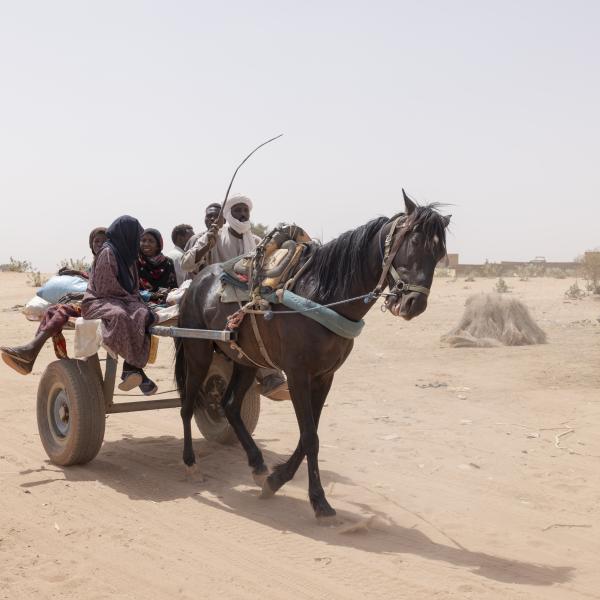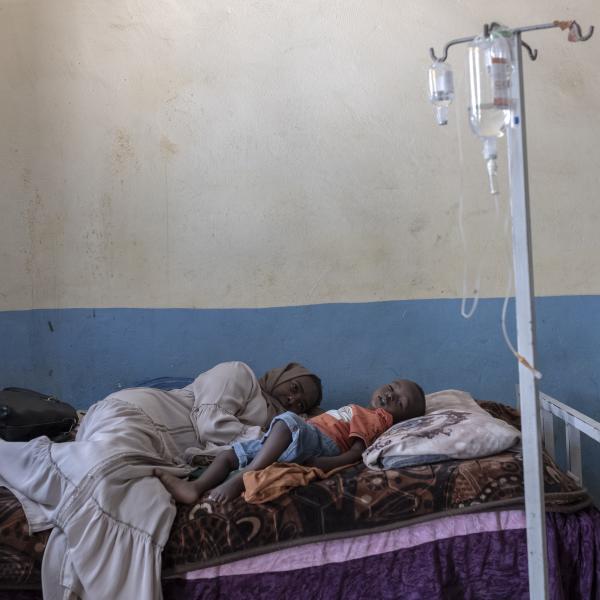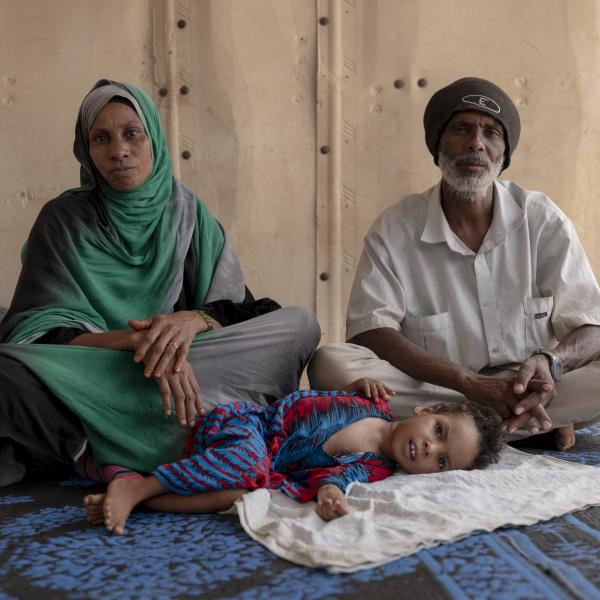At the most recent Zurich Film Festival, we had the opportunity to speak with Petros Mastakas. He has worked with UNHCR, the UN Refugee Agency, for 25 years and currently serves as Durable Solutions Officer. He has witnessed crises that have forced millions to flee their homes, notably during his time in Darfur, Sudan, from 2004 to 2006, and more recently in the ongoing conflict. This latest conflict, he says, is of unprecedented brutality.
Deployed in Chad between September and December 2023, he witnessed the arrival of hundreds of thousands of refugees fleeing the war in Sudan—a war that, two years after it erupted in April 2023, continues in deafening silence.
“The atrocities are unimaginable,” he says. His message is clear: we must not look away from what is happening.

An exodus across the desert
At the border between Sudan and Chad, there are no fences or checkpoints—only endless sand. It is here that entire families, exhausted and starving, collapsed after days of walking through extreme conditions.
Petros Mastakas recalls a monitoring mission: “We found two ten-year-old boys lying in the sand, in a semi-comatose state caused by exhaustion, hunger, and illness.” Rushed to a nutrition center, they survived and were later reunited with their family. “But they were lucky. Others are not.” If they hadn’t been found that day, they would not have survived.
How does UNHCR help refugees from Sudan?
The first to assist the displaced were the people of Chad, who extended a helping hand to refugees from Sudan. In a country with scarce resources, they shared what little they had: a bit of water, shelter, a meal.
Schools and mosques opened their doors, and local doctors treated the wounded and survivors of sexual violence.
Faced with the scale of the crisis, Chadian authorities turned to UNHCR and other humanitarian organizations. These organizations deployed teams and distributed food, medical care, and survival kits.
But the challenge remains immense. Resources are still insufficient, and the aid depends entirely on available funding. The more contributions received, the more UNHCR can expand its assistance and save lives.
To date, nearly 13 million people have been displaced by the crisis—and behind every number is a story of unimaginable violence.

Sudan: Extreme violence
Bombings, massacres, rape—those fleeing Sudan bear the scars of a merciless war.
Petros explains:
“Women and girls are raped. Young boys are mutilated—some armed groups cut off their fingers, believing they’ll no longer be able to carry weapons.”
People are fleeing attacks by armed groups and extreme violence. Along the way, they face harassment, further violence, and serious human rights violations—these atrocities are well-documented. Their suffering is unimaginable.
This isn’t Petros Mastakas’ first conflict. And yet… “In 25 years of humanitarian work, I’ve never seen this level of sexual violence.”
It’s hard to imagine the reality on the ground.
An invisible crisis: Why don’t we talk about Sudan?
Despite the scale of the crisis, why is so little attention paid to Sudan? Why does such a devastating war fall off the radar?
“We live in a world worn out by crises. But just because a conflict has lasted for years doesn’t mean the suffering has ended.”
The millions of displaced people do not deserve to be forgotten. Among them are women trying to rebuild their bodies and dignity after rape, children battling malnutrition, fathers who have lost everything.
“Imagine leaving everything behind overnight—no water, no food, no destination. This is not a distant scenario. It’s the reality for millions.”
It is crucial for the international community to keep these people in their minds and hearts—they still need help.
“My 25 years of experience have taught me that this can happen to anyone, anywhere, at any time—no matter what country we live in.”
What can Switzerland do for Sudan?
Humanitarian support makes a real difference in the lives of refugees and the communities hosting them. With more funding, UNHCR could drill new wells to provide clean water in the camps, distribute more food rations to vulnerable refugee children, women and men, and offer more medical care to survivors of violence.
Simple actions matter.
- Remember. Don’t let this crisis be forgotten.
- Donate. Every donation, even a small one, can save a life.
- Raise awareness. Share these stories, talk about Sudan, and don’t close your eyes to this crisis.
“Keep your heart open to them.”
Refugees are counting on us. On you.
Learn more about the crisis in Sudan
Panel discussion from the Zurich Film Festival
Watch our pannel following the screening of the film Sudan – Remember Us, featuring Petros Mastakas, film director Hind Meddeb, and el-Wathig el-Gozoli from the Sudanese Swiss Charity.
